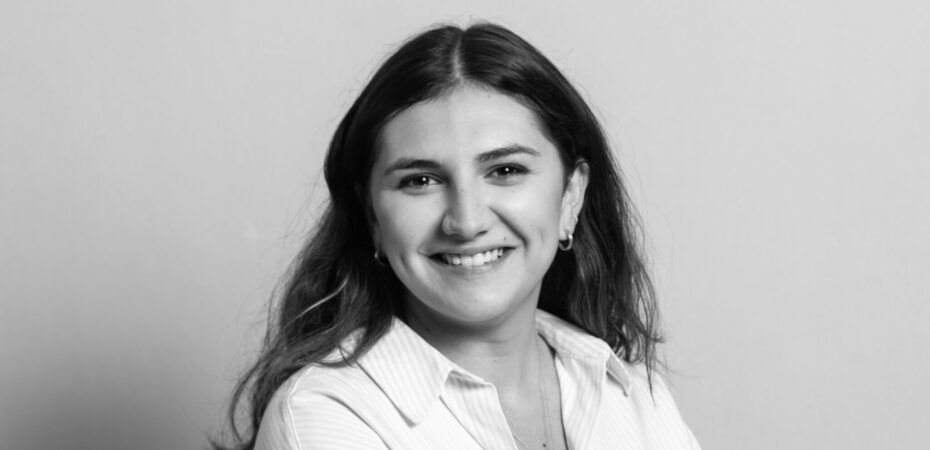We’re delighted to kickstart our series of guest blog posts on #EdSustainabilityCareers with an excellent contribution from Isobel Sizer, Policy Analyst at BeZero Carbon and University of Edinburgh alumna. Isobel shares her role and career journey as a policy analyst and her advice for students and new graduates looking for a role in the sustainability sector.
My role as a policy analyst at BeZero Carbon
BeZero Carbon is a carbon credit ratings agency, assessing the carbon efficacy (i.e. quality) of carbon credits generated from projects in the voluntary carbon market. Carbon credits are commonly used by companies to offset their emissions. Carbon markets are not a new concept and voluntary carbon markets have historically been unregulated, although this is beginning to change. This means my role as a policy analyst at the company is continuously evolving alongside the regulatory environment.
The focus of my role is to research and analyse the development of regulations of the market itself. This can be a range of measures such as rules for carbon credit buyers to disclose information on their purchases or new requirements for carbon credit project developers. We publish research on these topics which explores how these developments could impact carbon markets. A further element is to build databases and analytical tools that contribute to the wider carbon ratings process.
The voluntary carbon market may seem to be a particularly niche area within the sustainability sector – I would have thought the same during the first few years at the University of Edinburgh – but it reflects a broader trend of demand for jobs in the green economy that simply didn’t exist ten, or even five, years ago.
The journey I took to get here
I studied Politics at the University of Edinburgh and it was during my fourth year that I began to seriously consider pursuing a career in the sustainability sector. I was lucky enough that the biggest global climate conference, COP26, was hosted an hour away in Glasgow. There, I volunteered at Climate Action’s ‘Sustainable Innovation Forum’ with a group of fellow Politics students. We attended back-to-back panel discussions and created summaries from each session. The wide range of topics covered revealed potential new careers I hadn’t realised were available.
However, when I began to research jobs in this area, I found that many required a degree in sustainability or an associated field, so I chose a master’s degree titled Environment, Politics and Development at King’s College London. It was here that I was first introduced to BeZero Carbon through an internship placement module – making the most of this opportunity and the university’s careers service undeniably helped me to secure my current position.
I found the size and age of the company to be a really positive aspect in my professional development. Working in a fast-paced and dynamic environment like the climate-tech start-up BeZero Carbon enabled me to grow with the business and work with colleagues from a diverse range of professional and academic backgrounds, giving me the opportunity to collaborate across departments on several projects. The changing nature of the business does require flexibility and resilience. It may be that the focus of your role changes significantly over the course of a few months and your job description could be more fluid compared to that in a traditional corporate setting. That’s why I encourage you to consider the size and age of a company when applying for roles.
My advice to students and new graduates
The advice I would give to those looking for a role in sustainability would be to try to gain as much experience as possible and to make the most of the many excellent online resources available. This will demonstrate your initiative and ability to learn new skills and work collaboratively, which are crucial to any role.
There has been a huge increase in free online learning in the post-pandemic environment – take advantage of these to enhance your analytical skills. Explore the University’s access to platforms such as LinkedIn Learning or find out about free courses available to you as a student, like Code First Girls (I did an ‘Intro to Python’ course). You could also consider the range of online internship modules offered by some of the biggest and well-respected corporates which cover a variety of careers.
The nature of an evolving industry will likely mean that you haven’t completed work experience that directly relates to the role you’re applying for, but this shouldn’t be a deterrent. You can highlight transferable skills in other ways and online learning often offers the chance to do this at your own pace.
Thank you, Isobel.
Isobel highlighted the importance of building experience through internships, as well as how developing your skills is crucial for a role in sustainability. To get started with internships, visit our Finding internships and work experience webpage. To find out how you can develop your skills, visit our Developing your skills webpage.
If you would like to find out more about Isobel or contact her, visit her LinkedIn profile.
Stay tuned for more excellent blogs on #EdSustainabilityCareers!


